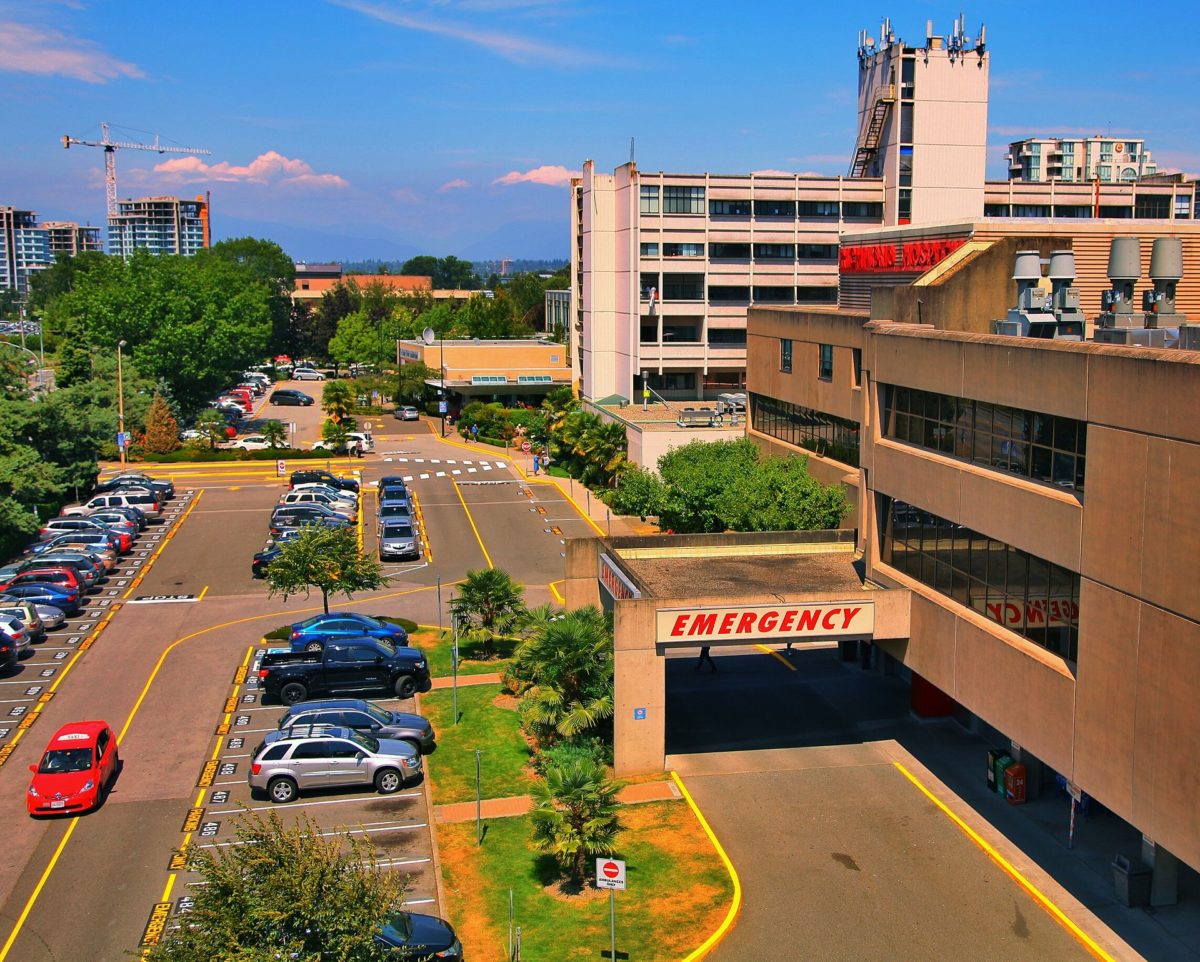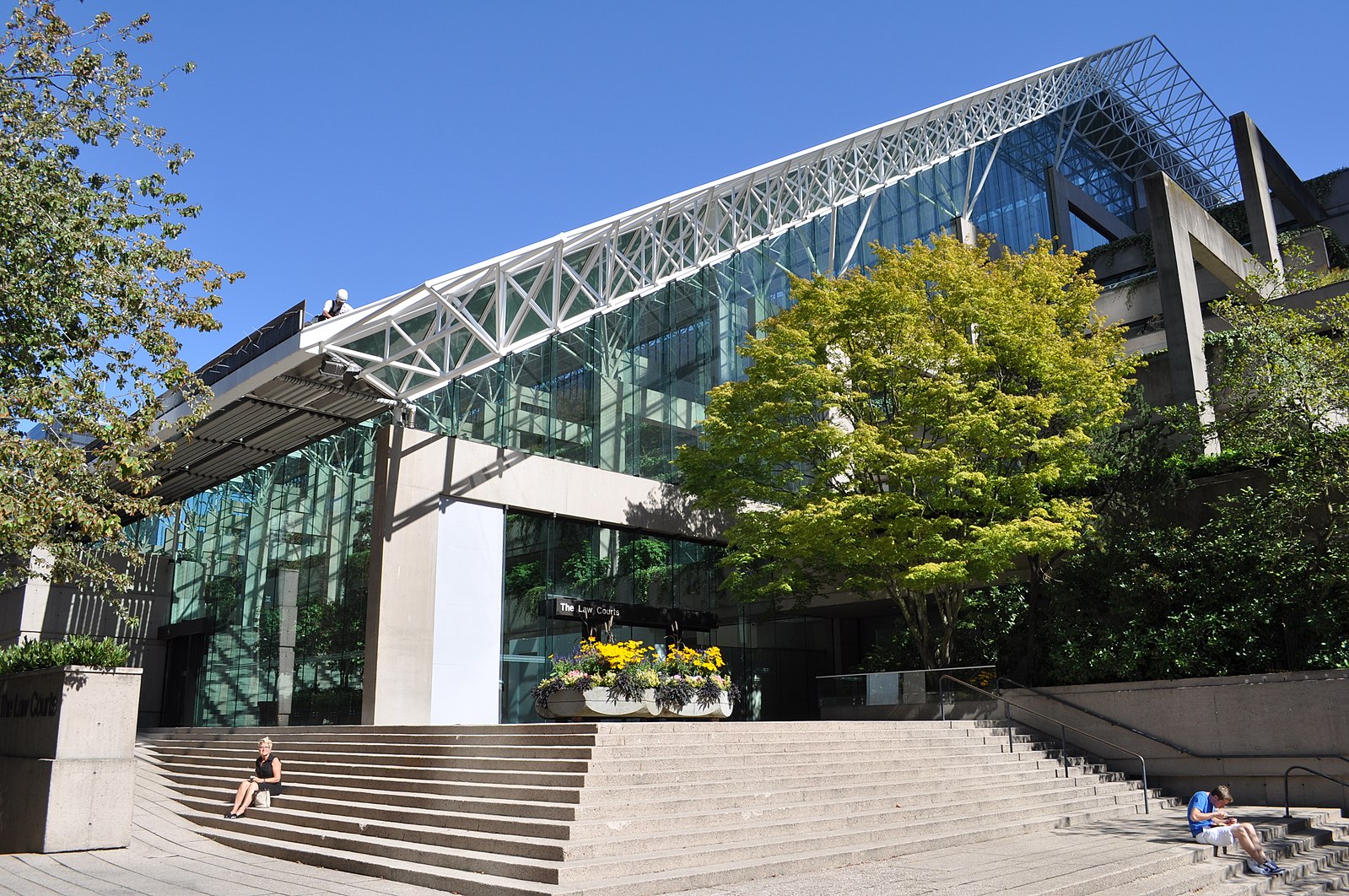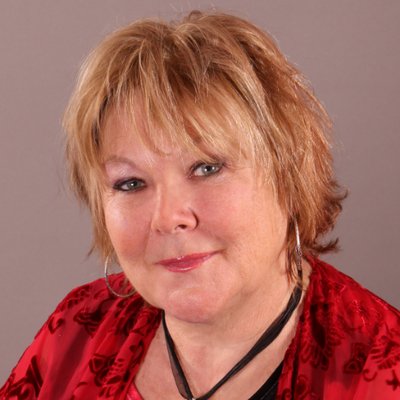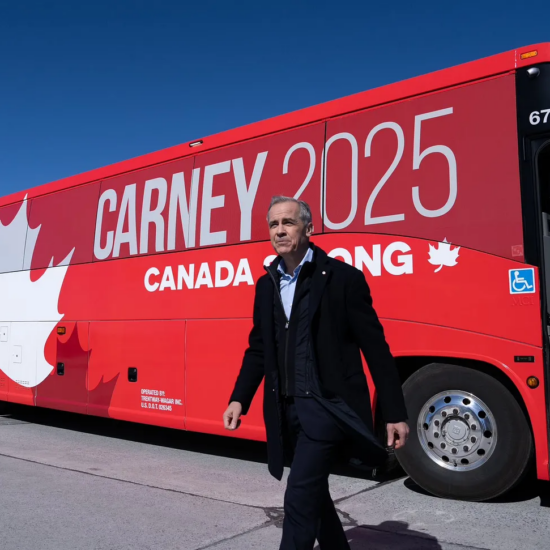
Bob Mackin
A British Columbia Supreme Court judge ordered the father of a two-and-a-half-year-old boy born in Richmond to a birth tourist to return the child to his mother in China, according to an oral verdict published Oct. 1
Justice Andrew Mayer ruled Aug. 23 in favour of the mother, TV host Manli Kong, after the child’s father had taken the Nov. 9, 2015-born child to Canada in late 2017 without Kong’s consent.
Both parents are unmarried citizens of the People’s Republic of China. The father, Tae Song, however, is a businessman who owns bottled water-related companies in China and Canada and has permanent resident status in Canada.

Law Courts Vancouver (Joe Mabel)
Kong came to Canada in September 2015 on a visitor’s visa to give birth to the boy. When the boy was six months old, he was returned to China where he lived with Kong and his grandparents in Beijing and part of the time with Song and his family, in Tianjin.
The judge found Beijing was the boy’s place of habitual residence prior to and after his removal from to Canada on Dec. 13, 2017. He was satisfied the boy was wrongfully removed from China by Song and remained wrongfully retained in B.C. He ordered Song to return the boy to Kong in Richmond or in Vancouver within 24 hours of the court order and that Song pay Kong expenses incurred as a result of the wrongful removal.
“In my view, the evidence establishes quite clearly that [the boy’s] place of habitual residence was China and in particular with his mother and grandparents in his mother’s home in Beijing,” Mayer said. “Although [the boy] was born in British Columbia, both parents admit that this was part of a birth‑tourism arrangement, which does not suggest that it was their intention for him to remain in British Columbia permanently after his birth. Place of citizenship and place of habitual residence are not the same thing.”
Mayer said Canadian law did not give him jurisdiction over parenting arrangements in China, but encouraged the parents to remain joint guardians and to not remove the boy from China without the other parent’s consent. He also recommended Kong have the final say in parenting responsibilities and to be the primary caregiver, but Song should be allowed reasonable parenting time and generous WeChat and/or FaceTime parenting time. “I am hopeful that the parties will either seek to come to an enforceable agreement in China, or elsewhere, or alternatively that the parties will seek recourse before the Chinese courts for a legal determination on issues of parenting time, guardianship and contact with [the boy].”
Mayer was not satisfied the parents agreed to terms for the boy’s travel to Canada, other than for a brief visit from December 2017 to the end of Chinese New Year in February 2018. Mayer also dismissed Song’s allegations of sexual abuse and parental negligence as “significantly exaggerated.”
Song alleged that in June 2016, the boy’s buttocks were photographed with stickers that Kong said were placed by an eight-year-old niece. In January 2017, Kong’s sister shot a video of a paper covering and exposing the boy’s penis. “This piece of paper had Chinese characters drawn on it, which included a pun written in Mandarin concerning the similar pronunciation of rooster and penis in Mandarin,” Mayer said. “I hope I have got that correct. That is the essence of it.”
The boy suffered superficial burns to his chest in January 2017 with hot water from a thermos that he had pulled off a table while Song and Kong were both present.
“The [allegations] are ill-conceived, and they are not supported by the evidence,” Mayer concluded. “They are hurtful and in my view unnecessary. An allegation of sexual assault by one parent against another is a very serious matter, and again, in my view the evidence falls well, well short of establishing such abuse.”
Evidence in the three-day court hearing included text message exchanges between the parents.
“The opportunities of the world exist in China,” Kong wrote in one message to Song. “Therefore he must be familiar with China and understand everything about China. It is okay for him to live in Canada for a while when he is young in order to establish the framework for English thinking.”
Wrote Song: “The child will benefit from living in Vancouver, which is our consensus. After you return to China we can agree upon fixed time for video chat. Due to the time difference I guess most of the time it will be your nighttime, and if you are with your lover and cannot have video chat, please notify us in advance and do not ignore the child’s video call, which will hurt him. Tell your mother to take her time receiving treatment recovering in Beijing. The child will not be there [British Columbia] for long.”

Richmond city council candidate Kerry Starchuk (Twitter)
Canada and the U.S. are the only G7 nations that give automatic citizenship to a child born to foreign citizens. At its August policy convention, the opposition Conservative Party passed a non-binding motion to end birth tourism, unless one of the parents is a Canadian citizen or permanent resident.
Richmond city council candidate Kerry Starchuk initiated a petition earlier this year that is ultimately aimed at banning birth tourism. The petition, sponsored by Richmond-Steveston Liberal MP Joe Peschisolido, drew support of 10,882 people and awaits tabling in the Houses of Commons. Electronic petitions must attract at least 500 digital signatories to be considered by the House of Commons.
“”The practice of ‘Birth Tourism’ can be very costly to taxpayers, since it can be used to gain access to Canada’s publicly subsidized post-secondary education system and to take advantage of Canada’s public healthcare system and generous social security programs, all without having to contribute much to the funding of these systems and programs,” said the Starchuk petition’s preamble. “Canadian citizens and permanent residents have been displaced by foreign nationals at local hospitals, thereby requiring Canadian citizens and permanent residents to seek medical attention at other facilities. Underground and unregulated ‘for profit’ businesses have developed both in Canada and ‘countries of origin’ to facilitate the practice of ‘Birth Tourism.”
During the year ended March 31, 2018, 474 babies were born at Richmond Hospital to foreign mothers, mainly from China. By comparison, Canadian mothers gave birth to 1,671 babies at the hospital. In 2016, B.C.’s health ministry had evidence of 26 so-called “baby houses” in the Lower Mainland, which cater to mothers visiting Canada to give birth.
Vancouver Coastal Health is suing a Chinese mother for an unpaid bill from a complicated pregnancy. The bill is worth more than $1 million, including interest.
Support theBreaker.news for as low as $2 a month on Patreon. Find out how. Click here.











